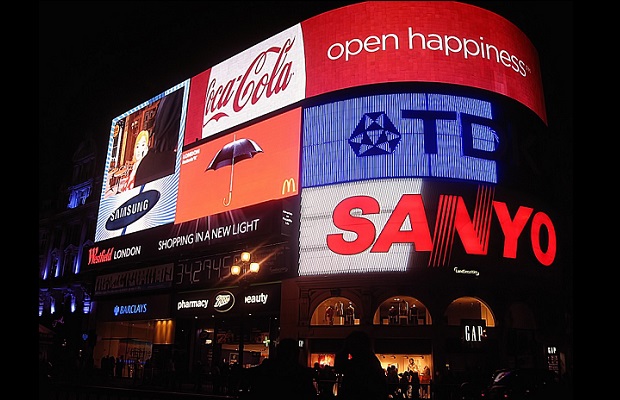UK adspend posted 4.2% growth in Q3 2016, defying uncertainty caused by the EU referendum, according to new research.
The data, from the AA/Warc Expenditure Report also indicated that one in five working across UK advertising are non–UK EU nationals.
Key findings:
· Advertising spend grew 4.2% in Q3 2016, following UK’s vote to leave the EU
· New data shows a £120bn contribution to GDP
· One in five working across UK advertising are non–UK EU nationals
· Advertising Association outlines industry priorities for Brexit negotiations
Advertising expenditure is an indicator of wider business and consumer confidence, with investment in advertising positively linked to GDP growth. New data from advertising think-tank Credos and Deloitte show that advertising contributed £120.4 billion to GDP in 2015, and supports over 550,000 jobs.
Credos has also surveyed 200 advertising businesses about Brexit. One fifth (22%) reported lost business or contracts since the vote and six out of ten respondents (62%) felt the decision had negatively affected the outlook for their businesses.
But the survey also showed signs of confidence. 23% of respondents saw Brexit as an opportunity for growth and 8% have increased investment in the UK. In November, independent agency holding company The&Partnership won Toyota’s pan-European advertising account, worth £1.2bn across five years. It is the largest full-service advertising account win within Europe for at least 20 years.
Johnny Hornby, chief executive of The&Partnership said:“Brexit isn’t the only major shift affecting our industry; the growth of programmatic marketing is also fundamentally changing the game for advertisers and agencies around the world. As an established global creative hub with both very strong creative and technology credentials, the UK should, with the right government support, be able to make the most of a lot of opportunities, both in Europe and internationally.”
The Advertising Association will today convene its industry summit to debate the sector’s position ahead of Brexit negotiations, with the Rt Hon Karen Bradley MP, Secretary of State for Culture, Media and Sport, speaking.
The Advertising Association has outlined UK advertising’s priorities for Brexit:
· Safeguard the UK’s competitive position as an important global and European hub for advertising and media businesses
· Establish a workable and effective EU and global immigration policy to help UK advertising to continue to attract global talent, and address the skills shortage through education policy
· Negotiate the UK’s position on various media and advertising-related EU rules and ensure as much market access as possible, through equivalence in UK law
· Adopt a non-interventionist domestic regulatory approach to the advertising industry to provide market certainty and advertiser confidence and support its advertising self-regulation system through the ASA
· In the longer term, consider what EU rules constitute red tape to be lifted after the UK has left the EU
Stephen Woodford, CEO of the Advertising Association commented:“Ad spend serves not just as an established bellwether for the wider economy, but as a driver of jobs and GDP growth, so negotiating the best possible terms for UK advertising should be a priority as Government engineers our exit from the EU.”
“Lengthier payment times”
Following the publication of the Advertising Association’s/Warc’s (AA) latest adspend report for Q.4 which found a 4% rise, Christopher Vogt, co-founder and Managing Director of BillFront, said: “Today’s results are to be welcomed, especially in light of the economic uncertainty caused by the EU referendum. Given that the industry makes a £120 billion contribution to the UK’s GDP, the advertising industry’s impact on the economy’s general health, can’t be underestimated.”
“Brexit, and what this will actually look like in reality, still looms large. The industry while in rude health, continues to face the pressure of ever lengthier payment terms. Due to outdated methods of dealing with payment, many companies within the digital media industry are unable to conveniently and quickly access their revenues. This hampered ability to readily access capital makes dealing with unexpected economic issues, such as Brexit, more difficult, particularly for small to mid sized companies who are more cashflow dependent. Those with readily available capital can pivot faster and more easily in the face of unexpected events than those who don’t.”
“This is why many within the industry are looking towards alternative financing options, to make sure they have as much flexibility as possible, regardless of what may be thrown at them this year.”
